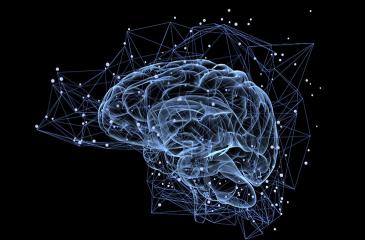Recognizing the Individual in Population-Based Brain Imaging Studies
Researchers at the Masonic Institute for the Developing Brain (MIDB) have utilized precision functional mapping (PFM) to establish the MIDB Precision Brain Atlas - an open resource of functional neural networks from over 9,900 individuals across ages and cohorts. As described in the recent issue of Nature Neuroscience, this evolving atlas launches with 53,000+ individual-specific network maps and probabilistic maps that enable researchers to evaluate unique aspects of topographical brain organization. This ability to address individual variability of functional neural networks may be beneficial in developing personalized approaches to care and intervention.

When lead investigator and lead author Robert Hermosillo, MS, PhD, began studying attention deficit hyperactivity disorder, he recognized the potential for neuroimaging to look at individual differences. However, for decades, neuroscientists have attributed an identical location of functional neural networks across individuals. This population-based approach has been acceptable, as standard methods of noninvasive brain imaging do not reliably detect functional heterogeneity among imaging participants.
Although the group-averaged approach may be satisfactory for healthy cohorts, the assumption of homogeneous functional brain areas may not be applicable in populations with highly-variable atypical complex behavior. Furthermore, the requirement of a 40-60 minute scan in a resting state limits access and feasibility for both participants and investigators.
As Hermosillo and colleagues described in this publication, the PFM methodology provides high reliability with reduced scan time (e.g., 10 minutes of motion-free data) thus providing an advanced method for noninvasive brain imaging and removing barriers to widespread adoption.
The MIDB Precision Atlas provides a roadmap for the neuroscience community in a way that respects personalized nature of the brain, even for those researchers who do not conduct neuroimaging.
“The better that we can characterize the individual, the better we can draw inferences about behavior, and the better we can understand the impact of external variables and interventions for that person,” said Hermosillo, who is a postdoctoral associate at MIDB and the Department of Pediatrics.
The investigators emphasize the importance of broad collaborations and open-science efforts in this discipline as the MIDB Precision Brain Atlas utilizes imaging data from repositories including the Adolescent Brain Cognitive Development study and the Developing Human Connectome Project. Moving forward, the MIDB Precision Brain Atlas portal encourages the community to contribute their own data in an attempt to be maximally inclusive.
Hermosillo applauds the number of participants, families and peers who have invested to make this resource possible - highlighting the complexity of coordination between participant engagement, data collection, data storage, data processing, and data analysis.
Damien Fair, PA-C, PhD, the Redleaf Endowed Director for MIDB and co-author on the study, adds, “This resource has many indications outside of basic research in that it has the potential to assist in optimizing targets clinically for both invasive and non-invasive neuromodulation for therapeutics. It is another great example of how the multi-disciplinary nature of MIDB can bring folks together with many different skill sets in a way that enables new resources advancing basic science and clinical care.”



